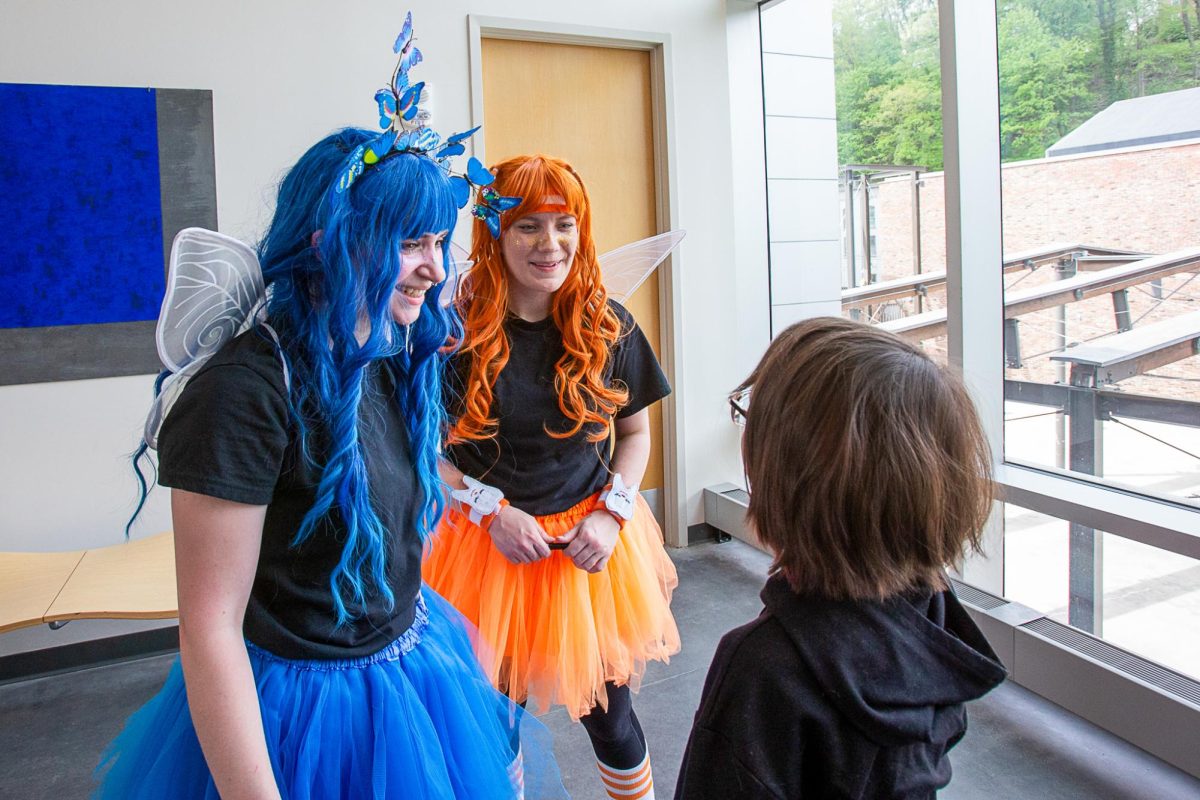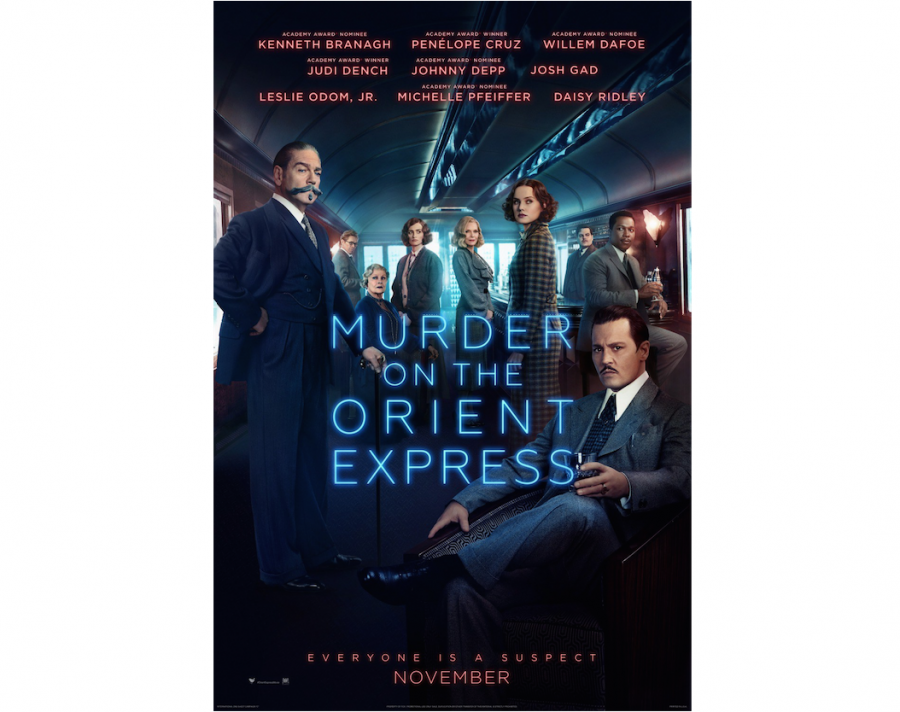Starring and directed by Kenneth Branagh, “Murder on The Orient Express” is based on Agatha Christie’s best-selling novel. The movie follows the story of Hercule Poirot, a Belgian detective who investigates the murder of Edward Ratchett, played by Johnny Depp.
The film contains an ensemble of actors like Daisy Ridley, Leslie Odom Jr., Josh Gad, Michelle Pfeiffer and more. In a time when Hollywood is becoming littered with remakes, it is evident that “Murder on The Orient Express” is an exception worth watching.
Branagh plays the role of Poirot as a much more involved person in his cases, much differently than his depiction in both the novel and the 1974 film. The new depiction appeals to a new audience in an age where action-packed movies such as the recently released “Thor: Ragnarok” take over the box office.
“Murder on the Orient Express” is not a perfect movie by any means. If there is something worth criticizing, it is that the movie often lags when examining the suspects.
Though Branagh’s portrayal of Poirot is much more interesting than that of the novel, it is still insufficient. Poirot may mirror Sherlock Holmes, but he certainly isn’t, for sometimes he lacks the wittiness and quickness of the Benedict Cumberbatch rendition of Holmes.
What often lacks in Branagh’s performance is made up for in the surrounding cast and in the direction of the movie, which takes a surprising twist. For while Christie was a brilliant author, she was also known to be racist. This newest version turns away from its original author’s bigotry as it features three prominent characters of color and an interracial couple.
Branagh maintains true to the genius of the classic, while also considering that times have changed and that certain aspects of the story were not necessary to convey the overall story itself. Branagh was able to make minor changes that improve upon the original version, while still capturing suspense and mystery.
“Murder on the Orient Express” opens with Hercule Poirot in Jerusalem, solving a case of a stolen gem. In this scene, the audience gets a first look at Branagh’s performance of an eccentric, genius detective when he quickly solves a puzzling crime. His ability to pick up on small details closely resembles that of Sherlock Holmes.
After solving the crime, Poirot boards the Orient Express, convinced that it is time for him to rest. This, however, turns out to be far from what happens. Ratchett, a crooked American businessman, is found murdered in his compartment. Poirot is disturbed from his rest and asked to take over the case, as the train has come to a standstill and the passengers are faced with the possibility of the murderer still being on board. Thus, the investigation commences. As Poirot goes through his investigation, it becomes clear to the characters and the audience that it will not be an easy nor predictable case.























































































































Al • Oct 5, 2020 at 7:43 pm
Classic novel taken up by self-indulgent lovvies and made into a dreadful film that tries to tell us what life should be (even back then) and hypocritically uses material from a ‘racist’ author. Thanks middle-aged middle-class white people for again showing us the right way to think and act in your beautiful ‘multicultural’ world. (And historical realism as well as entertainment value be damned!)
When will these people learn that the majority don’t live in this superfical little self-congratulatory world?
I wonder what the point of depicting an interracial relationship was. Certainly it was not necessary to the plot. Was it to preach to people? Or maybe a same-race couple is now racist as well? Does anyone really believe casting this interracial relationship would be thought of as unremarkable? Of course not! So, seeing as it was unnecessary to the plot the motivation would have to be…….
…ah yes, virtue signalling and deliberate provocation of those they don’t like. Certainly not what their job is – to entertain. If they really want to change society maybe they should get into politics. No? Of course not! Just gesturing to their echo chamber is about it.